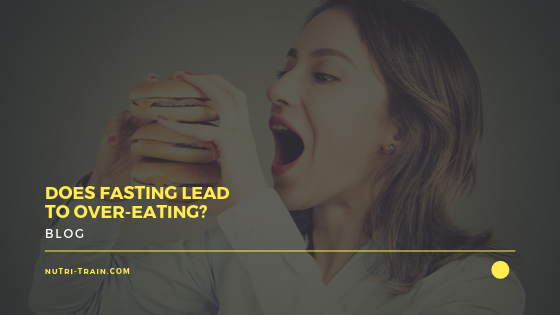|
When I explain to people that I fast – sometimes up to 36 hours, I get asked a lot of questions. ‘Isn’t it tough?’, ‘Doesn’t it make you over-eat?’, “Isn’t it dangerous?’, ‘…Binge eating?’.
It’s important to not that I ALWAYS advocate that anyone with a history of eating disorders or binge eating, should be focusing on healing their relationship with food, but for the rest of the population – fasting can help you gain control over your hunger, improve your digestive system, your understanding of your hunger cues – plus a whole host of other health benefits.
But, will fasting cause me to over-eat? That’s a different question I want to answer! And, one which is addressed in this 2002 study[1], which measured the calorie intake (ad libitum) of 24 healthy subjects after a 36 hour fast. At baseline (what they usually ate in their usual surroundings), subjects ate around 2,436 calories per day, after the 36-hour fast, their caloric intake increased by 478 calories, indicating an increase of roughly 20%. A natural compensation as food became available. But, the subject’s net deficit was nowhere near two full days of eating – concluding that “a 36 hr fast did not induce a powerful, unconditioned stimulus to compensate on the subsequent day.” Note – a 36 hours is much longer than most are achieving and practicing with intermittent fasting. This is something I’ve found myself. I’m currently sat writing this after 26 hours of fasting and contemplating what to eat. I’m not hungry, and nor do I have the urge the eat for the sake of it, but I know that what I do eat will fill me up, and therefore I need to make sure it nutritious.
So, why do people believe that fasting will lead to over-eating? Because they don’t understand their hunger cues and habits! There are two major components to hunger, both of which can lead to over-eating;
Unconditioned stimuli can be WEAKENED over time, but conditioned associations are habits and can easily be broken by changing the response – for example choosing a different and healthier meal at your favour restaurant, or drinking a glass of water when you head into the kitchen looking for your favourite snack, or not keeping snacks in the house altogether… you get the point. Personally, I believe that constantly eating contributes more to over-eating, than a simple fast will do every now and again. Eating 6 x per day can easily add up, and whether you end up eating more simply because there are more opportunities or because you’re constantly hungry due to the hormonal response of the constant stimulation – either way you’re more than likely to over-eating. If you’d like more help and advice on fasting, be sure to check out more of my blogs or The Fasting Playbook. I’d love to know what you think, please leave me a comment below. Speak soon, JC. [1] https://www.ncbi.nlm.nih.gov/pubmed/12461679
0 Comments
Leave a Reply. |
AuthorsJC and The Nutri-Team Archives
November 2020
Categories
All
|

 RSS Feed
RSS Feed
